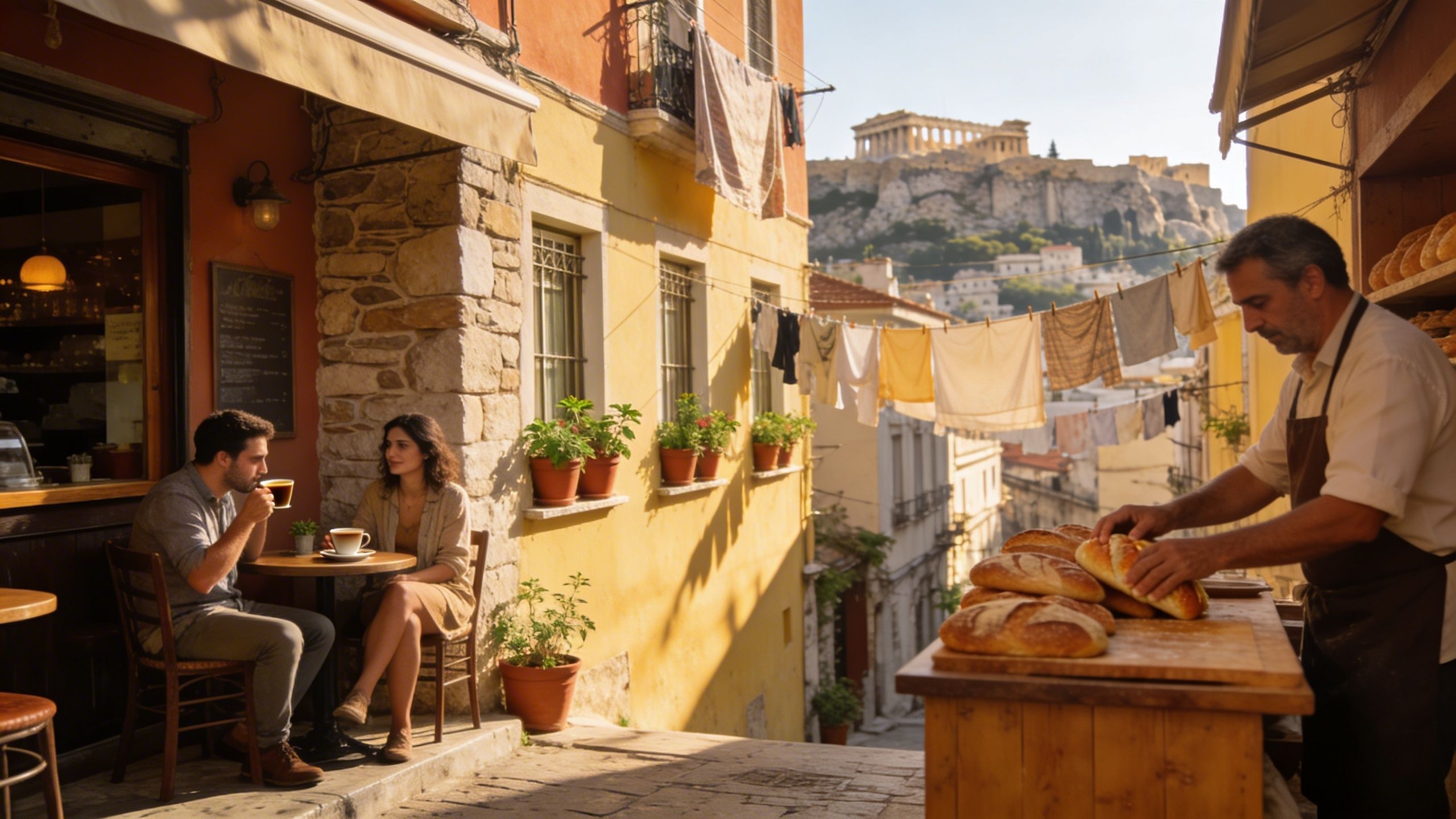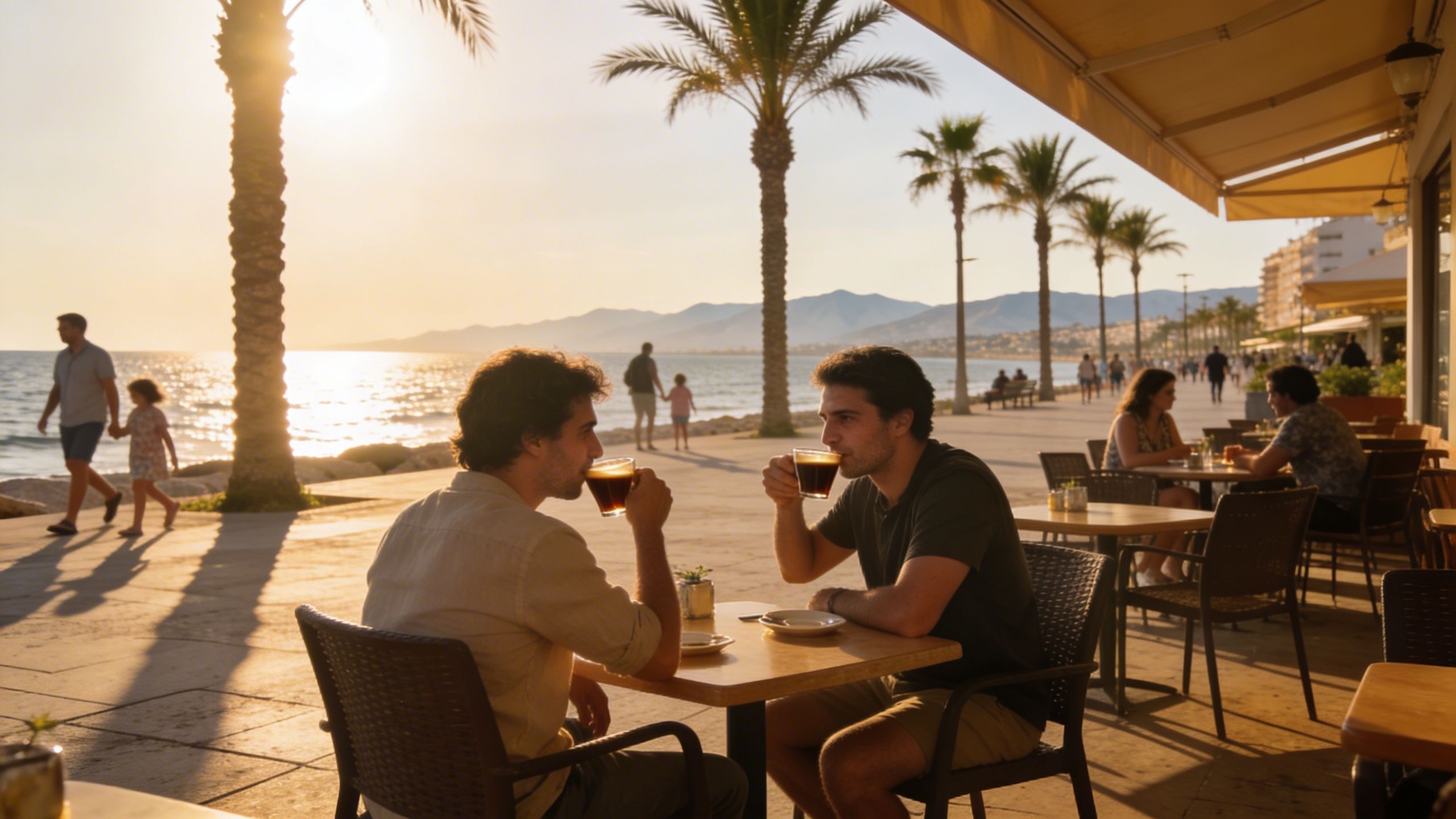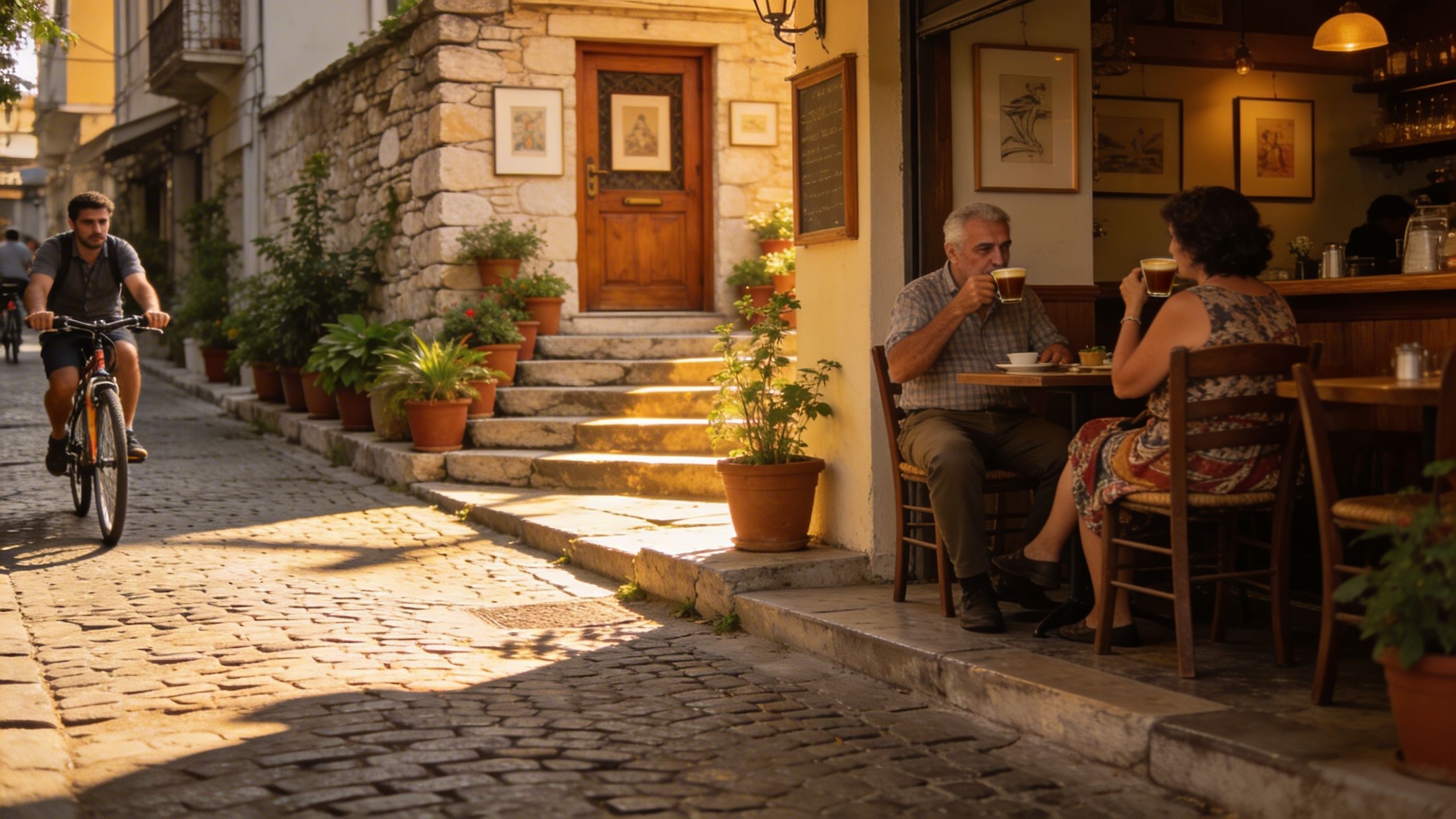Greece Green Mortgages: Timing, Truths & Practical Steps
Greece’s lifestyle is the purchase; green mortgages and Exoikonomo-backed loans can cut lifetime costs — budget 7–10% transaction fees and ask banks about energy-linked rates.
Imagine stepping out at dawn to buy a coffee in Exarchia, the light catching on sandstone facades while the sea-scented breeze waits for you on the tram to Palaio Faliro. In Greece, the day moves slowly enough to notice olive leaves shaking in the wind, yet fast enough that a market outside your door will sell out of wild greens by noon. That rhythm — slow mornings, convivial afternoons, and evenings that smell of grilling lemon and oregano — is the real purchase. But the paperwork, financing and energy choices determine whether that life is seamless or full of surprises. According to recent market analysis, buying in Greece today mixes rising regional demand with new finance products that reward energy upgrades.
Living Greece: mornings at the market, evenings by the sea
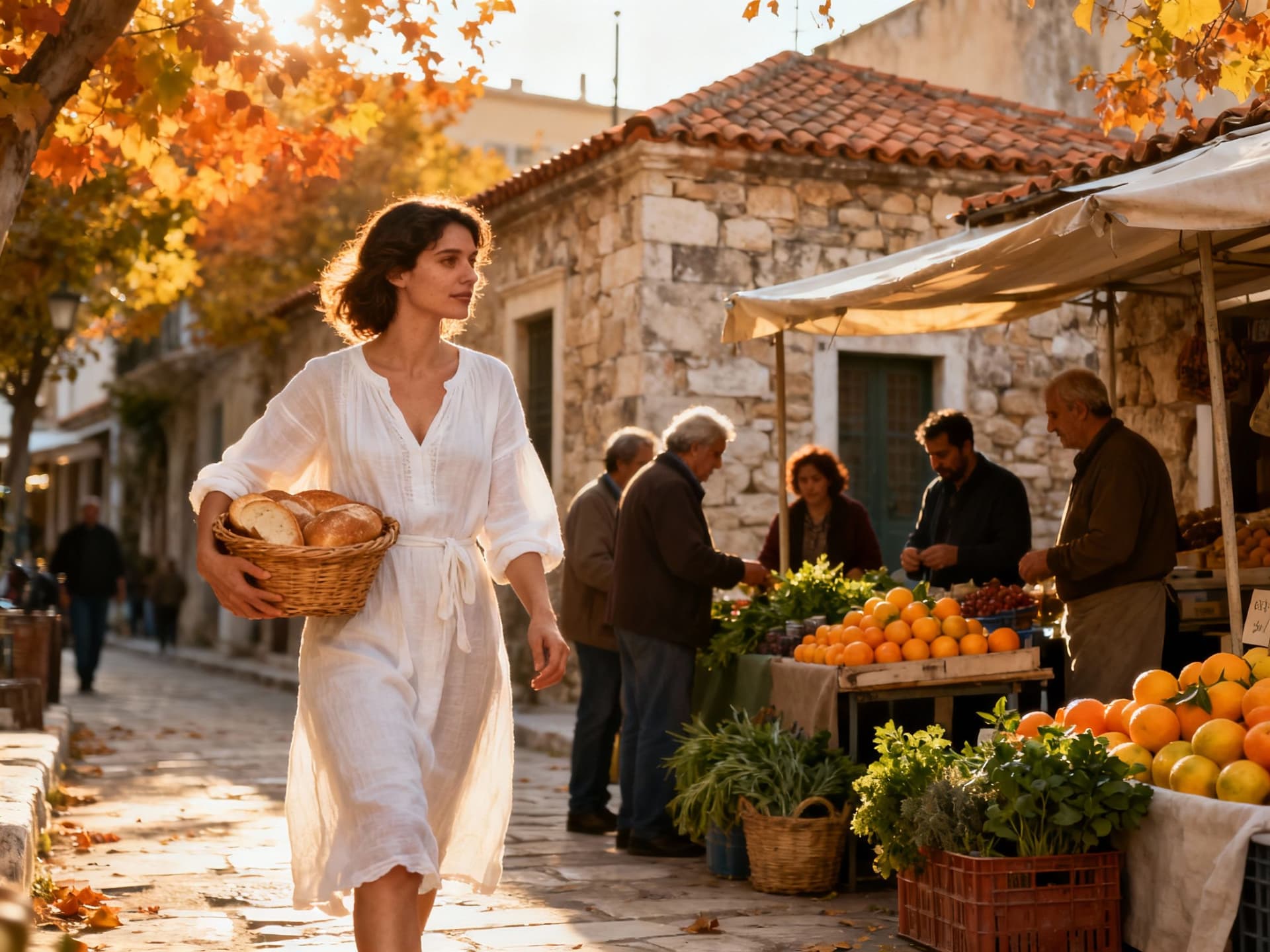
Greece is not a single mood — it is a chorus. Athens hums with espresso bars on Ermou and hidden courtyards in Kolonaki; Plaka and Anafiotika unfold like living museums where stone steps become front rooms. On Crete, mornings smell of warm bread from local boulangeries, while in Chania you’ll find fisherman mending nets at Souda harbour. Island afternoons on Naxos or Kefalonia are soft with swimming and lunch under bougainvillea. Whether you want a sun-baked terrace in Syros or a renovated stone house in Zagori, the daily life is defined by seasons, neighbourliness and food that anchors the day.
Neighborhoods that feel like belonging
If you love cafés and late-night conversation, walk between Exarchia and Koukaki in Athens; you’ll find small tavernas like To Kafeneio and corner bakeries where the barista knows the regulars. If you crave coast and calm, the village of Paleochora in Crete has a town square where families share dinner, while smaller Cycladic islands such as Serifos reward those seeking quiet beaches and stone-built homes that open to sea breezes. These pockets matter: a street with a morning market, a paediatrician nearby, a favoured taverna — they change what a property is worth to you.
Food, festivals and the pace of seasons
Markets set the calendar: sardine festivals on small islands, autumn chestnut fairs inland, and weekend fish auctions on working ports. Buying in Greece means buying into a rhythm — harvests in autumn, maintenance and renovations in spring, and a lull of local life in winter that can be the best time to negotiate. The lifestyle perks are real, and they also should be a filter for property decisions: proximity to markets, sun orientation for outdoor dining, and the microclimate that determines whether olive trees or citrus will thrive on your plot.
Local lifestyle highlights: Exarchia cafés, Plaka sunrise walks, Chania fish markets, Zagori stone trails, Serifos quiet bays, Crete village festivals.
Making the move: finance, green loans and the small print
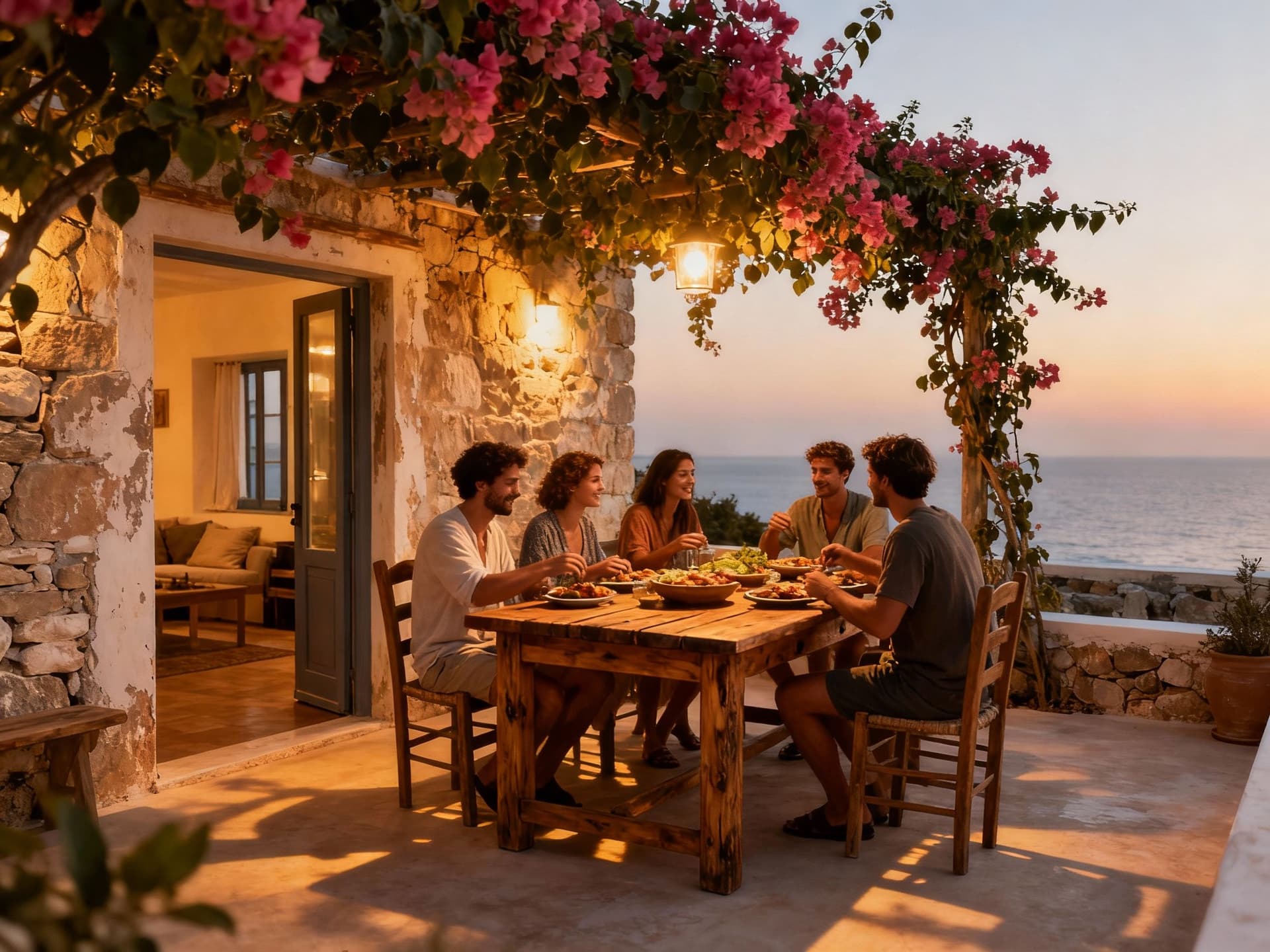
Dream first, then plan. The practical path to a Greek home is short but specific: secure a Greek tax number (AFM), open a local bank account, appoint a Greek lawyer to check title and permits, sign a preliminary agreement with deposit, and complete at a notary where transfer tax and fees are settled. Upfront transaction costs commonly add 7–10% to the purchase price — factor those into any budget. For international buyers, local banking relationships and a lawyer fluent in both your language and Greek property law will save months of friction.
Common financing realities
Most banks will lend to non-residents up to a percentage of value (loan-to-value depends on product, borrower profile and location). Expect conservative LTVs for buyers outside the EU and thorough proof-of-income requests. New-build purchases may attract VAT rather than transfer tax, and VAT rules can change — keep tax-advice close. For many buyers the smarter saving is allocating capital to energy upgrades that reduce running costs and unlock green finance options.
Green mortgages and renovation loans: a real saving
Greek banks and national programmes now link financing to energy upgrades. Eurobank reports active green mortgage lending and participation in Exoikonomo energy subsidy schemes; National Bank of Greece advertises green loans for home energy upgrades backed by European instruments. That matters: a borrower who budgets for insulation, heat pumps or photovoltaics can access preferential rates or co‑funding that reduce monthly costs and increase resale appeal. For international buyers, ask lenders about green mortgage products and whether a planned renovation could improve mortgage pricing or LTV.
Financing steps that marry lifestyle and value: 1) Get pre‑approval with LTV and currency terms; 2) factor in energy-upgrade costs and check green loan options; 3) secure a local lawyer to verify title and permits; 4) plan tax timing for transfer tax vs VAT; 5) use a notary to finalise and register deed.
Insider knowledge: myths, timing and expat reality
Myth: Greece is either cheap or wildly expensive. Truth: value is hyper-local. Coastal holiday hotspots often carry premium pricing, but inland villages, working ports and neglected suburbs of Athens can offer far more living for less. Timing matters: search in late autumn or winter when locals slow renovations, and sellers who depend on seasonal rents are more willing to negotiate.
Cultural cues that change a purchase
Greece runs on relationships. A recommended craftsman or a local kafeneio owner's word can move a negotiation more than a glossy listing. Language is tactical — many officials speak English, but your lawyer’s Greek fluency will be decisive. Expect renovation seasons in spring; plan building works then for quicker permit responses and contractor availability.
Long term: stewardship over speculation
If you buy in Greece expecting quick rental returns, set realistic expectations: seasonality defines income, and management matters. If you buy to live, invest in passive comforts — double glazing, shade, photovoltaic panels and water-wise landscaping — which lenders increasingly reward and which make the home feel lived‑in and cared for. Local agencies that understand sustainability can help you find properties with the bones of long-term comfort rather than short-term glamour.
Practical tips before you bid: 1) Ask for energy performance certificates and recent utility bills; 2) get a technical survey focused on humidity and roof condition; 3) budget 7–10% for transaction costs; 4) ask banks about green mortgage products tied to Exoikonomo or similar programmes; 5) prefer autumn/winter viewings to test real community life.
Conclusion — live first, finance wisely: Greece offers sensual, sun-drenched living and pockets of surprising value. Pairing a place you love (a street, a market, a harbour) with financing that rewards sustainability — whether an energy-upgrade loan or a green mortgage — turns a purchase into stewardship. Start with a local lawyer, speak to banks about green loan options, and plan viewings outside high-season. Then imagine waking to a neighbour’s lemon tree and know your financial choices will let that life flourish.
British expat who traded Manchester for Mallorca in 2017. Specializes in guiding UK buyers to luxury Spanish estates with clear navigation of visas and tax.
